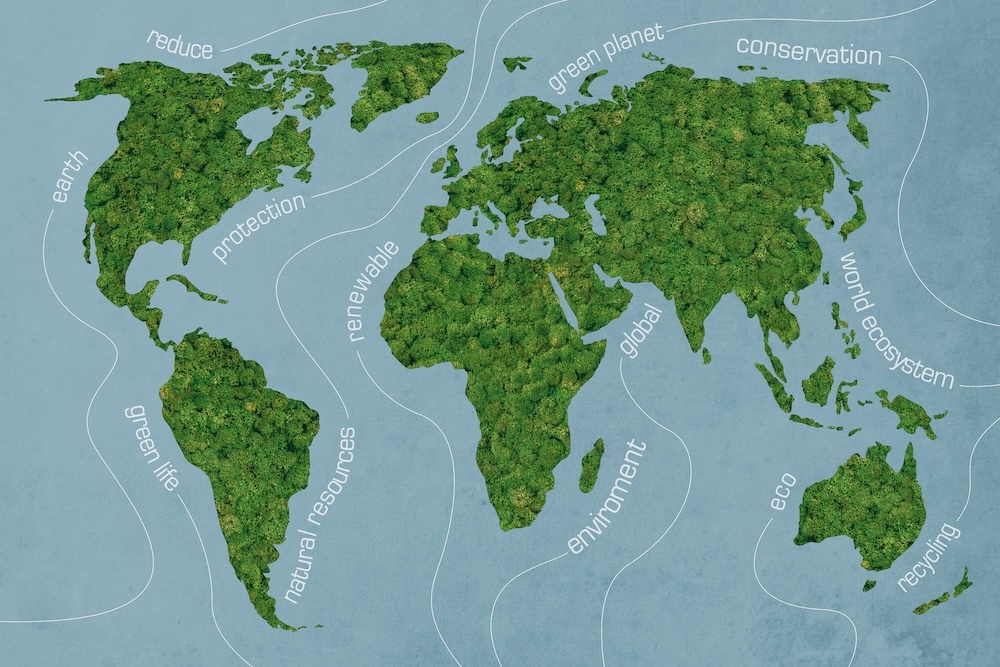Sustainability is no longer a buzzword — it’s survival. Climate change, biodiversity collapse, and resource depletion are accelerating faster than policies can keep up. Some countries stand out for bold climate goals and innovative strategies. But even the so-called “leaders” are far from flawless. Their progress offers both inspiration and warning: transformation is possible, but contradictions remain.
This guide highlights countries often celebrated for sustainability — and the overlooked issues we can’t afford to ignore.
Countries Leading the Way
Sweden
Sweden has pledged to be fossil fuel–free by 2045, powered by heavy investment in renewables, electric transport, and advanced waste-to-energy plants. Yet its per-capita consumption is among the world’s highest. And incineration, often branded as “green,” still produces emissions while discouraging waste prevention at the source.
Denmark
Denmark plans for 100% renewable energy by 2050. Wind already supplies more than half its power, cycling is part of daily life, and a national carbon tax supports its reputation as a leader. But Denmark is also one of the world’s largest pork and dairy exporters — industries with vast methane emissions and ecological costs.
Norway
Norway leads the world in electric vehicle adoption and invests heavily in carbon capture. But its economy rests on oil and gas exports. Can a nation truly claim sustainability leadership while fueling fossil demand abroad?
Costa Rica
Costa Rica runs mostly on renewables and is known worldwide for eco-tourism and ambitious neutrality goals. But the boom in tourism strains ecosystems, and reliance on hydroelectric power leaves it vulnerable to climate-driven drought.
Bhutan
Bhutan measures success with Gross National Happiness, maintains over 70% forest cover, and absorbs more carbon than it emits. Yet its dependence on imported goods and hydropower reveals economic vulnerabilities often overlooked in the headlines.
Germany
Germany’s Energiewende (energy transition) brought massive wind and solar investment. But coal clung to its grid for decades, and its powerful car industry remains a major climate laggard.
Finland
Finland targets carbon neutrality by 2035 and promotes sustainable forestry. Yet “sustainable” clear-cutting for bioenergy or pulp undermines biodiversity and weakens carbon sinks, raising questions about what counts as green.
Overlooked Issues We Can’t Ignore
Global sustainability isn’t just about renewables and carbon targets. Critical blind spots remain:
Biodiversity Loss
Forests, coral reefs, and pollinator populations are collapsing. More than 75% of food crops rely on pollinators, yet pesticides and habitat destruction put bees at risk. A renewable-powered world without functioning ecosystems is not sustainable.
Food Waste
One-third of all food produced globally is wasted. This squanders land, water, fertilizer, and energy while generating methane in landfills. Cutting food waste may be one of the fastest ways to lower emissions and improve food security, yet few governments treat it as urgent.
Plastic Pollution
Even in high-tech recycling nations, plastic leaks into rivers and oceans. Recycling cannot keep pace with production. Microplastics now contaminate human blood and breast milk. The only solution is reducing plastic at the source and investing in safer alternatives.
Overconsumption
Wealthy countries celebrate climate leadership while maintaining lifestyles far beyond planetary limits. Fast fashion, oversized vehicles, and short-lived electronics highlight the truth: sustainability requires consuming less, not just consuming “greener.”
Environmental Justice
Pollution, mining, and waste facilities often burden marginalized communities. True sustainability requires equity; otherwise, “green” progress in one region is built on sacrifice zones in another.
Water Scarcity
From Cape Town’s “Day Zero” to drought-driven migration, water shortages are intensifying. Yet water efficiency receives far less attention than energy efficiency — despite being just as critical.
Soil Degradation
Soil sustains food, ecosystems, and carbon storage. Industrial agriculture erodes and pollutes it faster than it regenerates. Without healthy soil, no sustainability plan can succeed.
Final Thoughts
Countries like Sweden, Denmark, and Bhutan prove that bold cultural and policy shifts are possible. But sustainability is not a trophy — it’s a moving target. Even leaders struggle with contradictions, from overconsumption to biodiversity loss.
The takeaway is clear: progress requires more than renewables and bike lanes. It demands confronting harder truths — reducing demand, cutting waste, restoring ecosystems, and ensuring justice.
Sustainability isn’t a checklist or a feel-good label. It’s a systemic transformation that calls for honesty, humility, and action at every level of society.








